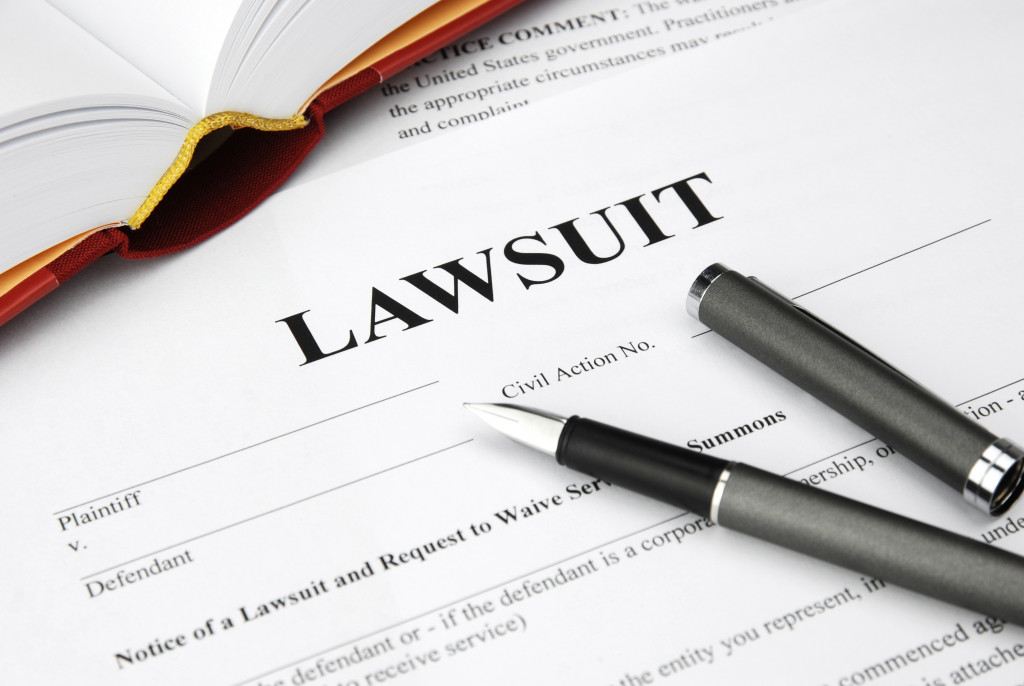- Lawsuits are common and costly for businesses, with an average small business lawsuit costing $30,000.
- To avoid lawsuits, businesses must proactively identify and minimize potential liabilities in the product, employment, premises, and intellectual property liability.
- Settling or negotiating with lawsuit filers can save time, resources, and reputations and should be done as quickly as possible with the help of a reliable process server.
- Protecting a business’s reputation in the digital era is crucial in preventing negative information from spreading and rebuilding trust with customers through engagement and responsiveness.
Lawsuits are a significant concern for businesses of all sizes and industries. It is pretty standard for companies to face lawsuits at some point. According to a survey conducted by the U.S. Chamber Institute for Legal Reform, over half of small businesses in the United States have faced at least one lawsuit in the past. Further, roughly 10% of small companies face a lawsuit each year.
The consequences of lawsuits can devastate businesses, particularly smaller ones that may struggle to cover litigation costs. In addition to the direct costs of legal fees, settlements, and damages, companies may also face indirect costs such as lost productivity, reputational damage, and lost business opportunities.
In a survey conducted by Hiscox, a global specialist insurer, the average cost of a small business lawsuit was $30,000. For larger businesses, the prices can be much higher. As a result, companies must take proactive measures to minimize the risk of cases.
Here are a few tips for preventing and managing lawsuits:
Identifying Potential Liabilities
Most lawsuits are preventable if businesses proactively identify and minimize potential liabilities. With a thorough understanding of the most common sources of harm, companies can avoid costly legal battles and protect their bottom line. Here are the four most common potential weaknesses that businesses should be aware of:
Product Liability
Product liability is a significant concern for businesses involved in manufacturing, distributing, or selling products. When products cause injury or harm to consumers, companies may face lawsuits alleging that they were responsible for the defect or failure to warn consumers about potential dangers. For example, a defective car part may lead to an accident, or a food product may cause illness. Companies must ensure that their products comply with safety regulations and undergo rigorous testing to minimize the risk of defects.
Employment Liability
Employment liability involves legal issues related to the employer-employee relationship. Common employment-related lawsuits include discrimination, wrongful termination, and harassment claims. Businesses must follow federal and state employment laws to avoid litigation related to employee disputes. A comprehensive employee handbook, regular training sessions, and a transparent disciplinary process are just a few areas where companies can mitigate the risk of employment liability. You can hire an employment attorney to mitigate these issues and deal with your daily operations.
Premises Liability
Premises liability refers to lawsuits resulting from injuries on the company’s property or premises. Litigation can arise from accidents resulting from a company’s failure to maintain a safe and secure environment for visitors, employees, or customers. Such cases involve slip and fall accidents, inadequate security measures leading to third-party criminal activity, and other incidents that could have been avoided with proper maintenance and care.
Intellectual Property Liability
Intellectual property liability involves claims arising from alleged infringement of copyrights, patents, or trademarks. This can occur if a company uses another brand without authorization or develops and markets a product that infringes on an existing patent. Understanding intellectual property law clearly and obtaining the proper permissions or licenses is essential to avoid potential lawsuits.
Settling or Negotiating

Companies should consider settling or negotiating with lawsuit filers to avoid costly litigation, save time and resources, and preserve reputations. Settling or negotiating benefits businesses because it allows them to avoid the potential risks of going to court and facing prolonged litigation.
Additionally, settling out of court can prevent further legal expenses, such as fees related to hiring legal services and gathering evidence that may lead to an even bigger bill in the end. Moreover, by settling disputes out of court instead of fighting them through lengthy civil trials, companies can protect their reputation from being tarnished by a public problem that could potentially involve sensitive company information being aired publicly.
Being as fast as possible in responding to a lawsuit is essential, so having a reliable process server is recommended. A process server ensures that all the paperwork associated with such cases is served promptly and accurately, reducing the chances of significant delays or errors in filing documents.
Recovering Business Reputation

In today’s digital age, protecting a business’s reputation and preventing negative information from spreading online is more important than ever. A solid online presence can be essential for earning customers’ trust and loyalty, so companies must take the necessary steps to mitigate any potential damage caused by lawsuits.
Businesses can employ strategies such as increasing their visibility on social media, increasing positive reviews on review sites like Yelp or using search engine optimization (SEO) tactics to help keep their ratings high. Additionally, businesses can engage with customers directly by responding to questions or inquiries quickly and effectively. Taking responsibility for past mistakes and seeking customer feedback can also go a long way in rebuilding trust and restoring reputations.
Final Thoughts
Lawsuits can significantly burden businesses, mainly if they are unprepared. Companies must take proactive measures to identify potential liabilities and minimize their risk of litigation. Further, settling or negotiating out of court is sometimes the best option for both parties. Finally, businesses should also focus on rebuilding their reputation by engaging with customers and improving their online presence. By taking these steps, companies can protect themselves from future lawsuits and stay competitive in today’s market.



